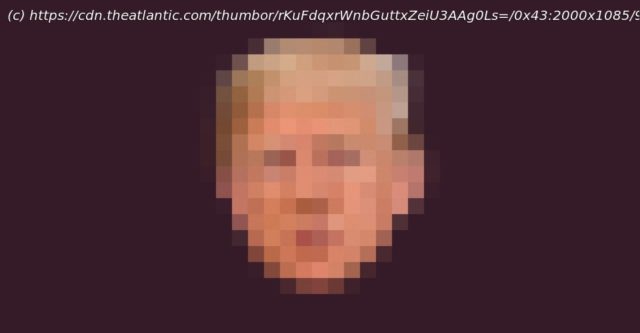The president’s executive order is opportunistic and Orwellian—but that was the whole point.
Donald Trump has used Twitter to do many things: accuse a man of murder, incite insurrection, harass private citizens, block critics, lie about voting systems, threaten war crimes, promote unproven drug treatments, and divert attention from the 100,000 deaths of Americans on his watch. He has done all of this, and more, for years without the slightest interference by the platform. Even as he repeatedly violated Twitter’s rules and policies and the targets of his malicious campaigns pleaded for intervention, the social-media platform stood down.
But on Tuesday, Twitter did something it had never done before. It fact-checked Trump, or, more precisely, it added a small label with an exclamation point and the words “Get the facts about mail-in ballots” to two of Trump’s tweets that contained false claims about voter fraud. Clicking on the label leads to a Twitter announcement headlined “Trump makes unsubstantiated claim that mail-in ballots will lead to voter fraud.”
Within minutes, Trump had accused the platform of “stifling free speech” and “interfering in the 2020 Presidential Election,” vowing to “not let it happen.” The next day, Trump’s press secretary, Kayleigh McEnany, told reporters that Trump would sign some kind of executive order about social media; a draft of the order was circulated to journalists and members of the public later that night. On Thursday, after ordering reporters out of the room, Trump signed the executive order, the final text of which was released shortly after.
The executive order is, to put it plainly, an opportunistic, Orwellian, legally unintelligible screed. For one, its use of the First Amendment as a framing device is an obvious exercise in bad faith. Even Trump, constitutionally illiterate though he may be, is doubtless aware that the First Amendment is a restraint on the government’s power to restrict free speech, not an all-access pass for him to use private businesses and services to say whatever he likes. The order’s attempt to declare social-media platforms public forums with statelike obligations falls flat too, because, as Trump’s own handpicked Supreme Court justice Brett Kavanaugh wrote last year, “merely hosting speech by others is not a traditional, exclusive public function and does not alone transform private entities into state actors subject to First Amendment constraints.






